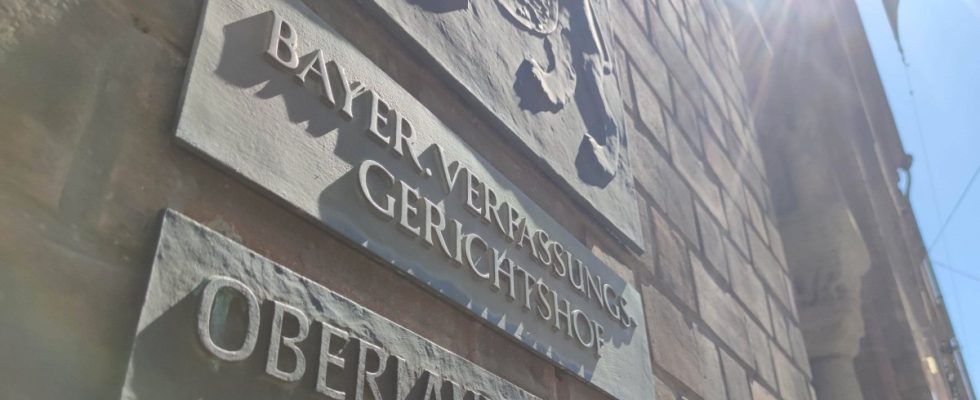In the wake of the anti-AfD demonstrations, the parties in Bavaria’s parliament are also moving closer together. The CSU, Free Voters, Greens and SPD would like to send a signal against right-wing extremism in the state parliament on Wednesday with a joint urgent motion including a debate. “If Democrats stick together, extremists have no chance,” says CSU parliamentary group leader Klaus Holetschek. “Separated in colors, united in substance,” says Green Party deputy group leader Johannes Becher. The application is the South German newspaper In it, the four factions condemn any “effort to deliberately weaken, damage and delegitimize democracy in Bavaria and the organs of our Bavarian democracy.”
The application reflects the nationwide horror according to reports from the research network Corrective about a meeting of right-wing radicals in Potsdam, in which AfD politicians took part. There is said to have been a discussion about how large numbers of foreign citizens and people with a migration history can be driven out of Germany. In addition to the national dimension, there are also the AfD scandals in Bavaria.
There is not only the affair surrounding the AfD state parliament member Daniel Halemba, who is being investigated for alleged incitement. Despite a decision to throw him out at the AfD state party conference, Halemba is sticking to his mandate – and the state parliamentary group is sticking to him. There were also considerations in the AfD to have Halemba, who was wanted with an arrest warrant in October, publicly arrested in parliament in order to “delegitimize” state parliament President Ilse Aigner (CSU). to the worst times in German history and must not be tolerated,” says the emergency motion.
In mid-January, videos from a Gredingen discotheque circulated in which right-wing radical slogans were sung after the AfD state party conference. You can see it: MPs Benjamin Nolte and Franz Schmid. Both deny having sung along. For AfD parliamentary group leader Katrin Ebner-Steiner, the matter is just as “done” as the Halemba case. Not for the other parliamentary groups, which is also why the urgent motion initiated by CSU parliamentary group leader Holetschek.
On the occasion of CorrectiveAccording to research, there was recently a debate in the Bundestag about the dangers to democracy and the right strategy in the fight against right-wing extremism. The usual dispute between the Union and the traffic light government was mixed into the debate. And now, in Bavaria? Will the CSU and FW on the one hand and the SPD and the Greens on the other refrain from accusing each other of making the AfD big? Green Party leader Becher emphasizes that it is about “joint action” and “regaining respect and trust in the democratic parties”.
The decision of the Federal Constitutional Court, which decided on Tuesday to cut off state party funding for the right-wing extremist NPD, which now calls itself “Die Heimat”, is likely to play a role in the debate. This could be a “blueprint” for the AfD, said Prime Minister Markus Söder (CSU). State Chancellor Florian Herrmann (CSU) called the recent demonstrations on Tuesday an “impressive sign of the broad middle classes against right-wing extremism and also the AfD”. At the same time, the organizers have to be “careful” about who is given a platform. Munich’s former mayor Christian Ude (SPD) summed this up well with his criticism of “left-wing sectarian groups”.
The election of honorary constitutional judges continues to cause controversy
The emergency motion is only on the agenda for Wednesday evening. The question of how to deal with the AfD and right-wing extremism is likely to be an issue in the state parliament beforehand. In the morning there will be a memorial service for the victims of National Socialism, and in the afternoon the election of 15 honorary constitutional judges and deputies will take place. All factions are allowed to appoint people who complement the professional judges. Because the state parliament cannot vote individually, but only on the entire list of candidates, the CSU and FW government factions want to vote for the AfD candidates, two judges and two vice-presidents. Otherwise – given the expected rejection of AfD candidates – the court would be formally unable to function. According to reports, Constitutional Court President Hans-Joachim Heßler and the Interior Ministry have conveyed legal concerns about an individual election to the state parliament.
The Bavarian Education and Science Union (GEW) is now proposing to postpone the election of judges. She was part of the broad alliance that called for the Munich protests and is initially calling for a new regulation of the procedure that makes it clear that all candidates “must stand on the basis of the Basic Law.” In addition, there must be a regulation that ensures that the Constitutional Court is considered capable of working even with incomplete staffing. GEW state chairwoman Martina Borgendale questions the firewall against right-wing extremism if AfD candidates were promoted to judgeship with the support of the CSU.

